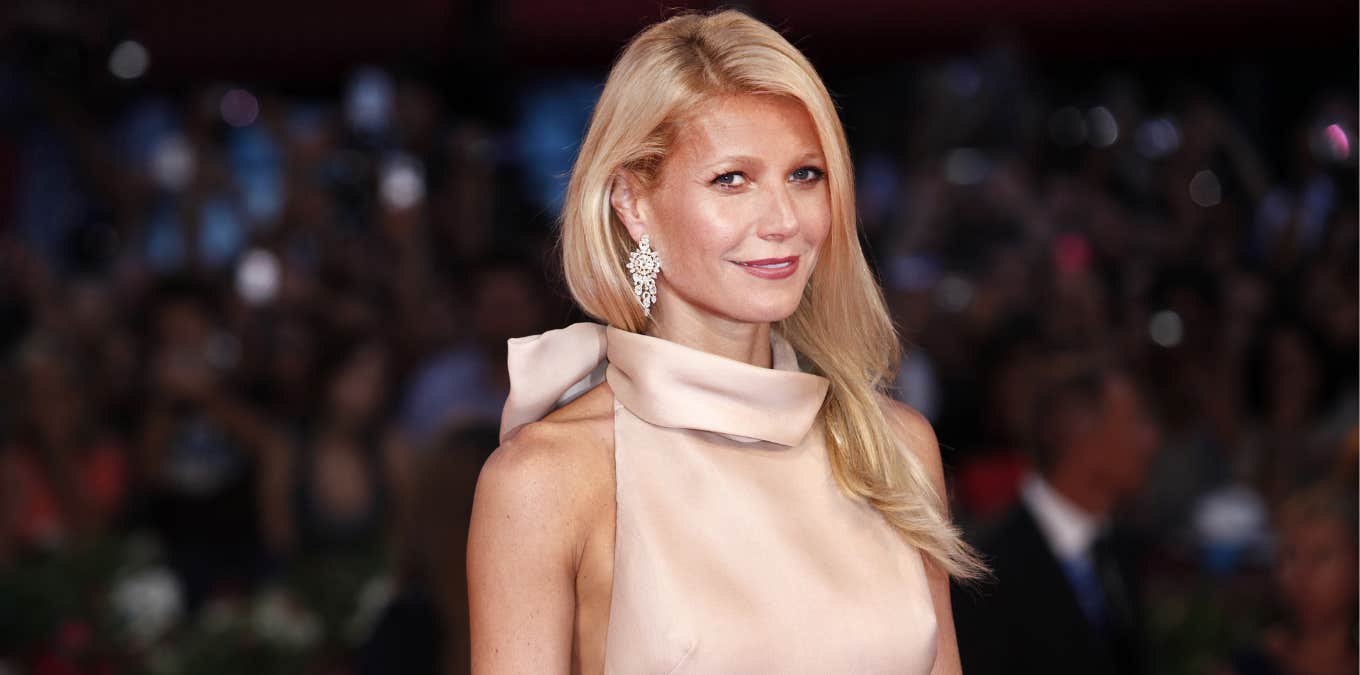The Concerning Behind-The-Scenes Story Of Gwyneth Paltrow's Body Double In 'Shallow Hal'
For everything she went through, she’s fully aware of the ambiguities of her Hollywood experience.
 Andrea Raffin / Shutterstock
Andrea Raffin / Shutterstock There are many parts of pop culture that were accepted in the early 2000s that have been reframed in a way that acknowledges the harm they caused.
The widened perspective of the past 23 years has created space for conversations we weren’t having back then. We now acknowledge that the dominant narratives of that era virulently objectified and shamed women for solely existing. Think of every time the subject of a teenage Britney Spears’ body was brought up in an interview.
Hollywood is a warped mirror environment, an industry that distorts and amplifies societal issues. The market of making and selling movies hinges deeply on the subject of women’s bodies — specifically, which bodies are deemed palatable, beautiful, or grotesque.
The behind-the-scenes story of Gwyneth Paltrow’s body double, Ivy, Snitzer, in the movie ‘Shallow Hal’ shows the complex reality of having a body that doesn't fit the norm.
In 2020, freelance journalist Amelia Tait began writing a newsletter titled “The Waiting Room," which features the personal story of one individual. In the edition of "The Waiting Room" published on August 14, 2023, Tait delved into the experience of Ivy Snitzer, who was cast as Paltrow’s body double in the 2001 movie “Shallow Hal.”
Paltrow played Rosemary, a fat character with a hidden, thin, inner beauty that only Jack Black’s character, Hal, could see. Snitzer was featured in close-up shots, her body standing in for the fat version of Paltrow's Rosemary.
Paltrow, who’s now known as the purveyor of a purportedly wellness-focused lifestyle brand, wore a fat suit while filming, a decision that overtly tokenizes the actual lived experience of fat people. Yet as Tait’s profile of Snitzer shows, the reality of playing a fat character as someone who’s actually fat was much more complex than it seemed at first glance.
Snitzer was 22 years old when she joined the cast of “Shallow Hal.” She was an acting student in Los Angeles, and recalled that the movie’s portrayal of a fat woman seemed progressive — her character “was cool, she was popular, she had friends.” She commented on the negative representations of fat people in the media during the 2000s, noting, “At that point, if you saw someone obese in a movie, they were a villain.” As Snitzer reported, she felt validated while filming, as the crew “treated me like I really mattered, like they couldn’t make the movie without me.”
Upon the movie’s release, Snitzer was cast into the spotlight in a world where being fat was deemed unacceptable.
Suddenly, strangers assumed they had the right to accost Snitzer about her body, her quotes in interviews, and her life choices, which they knew nothing about. She told Tait, “It was like the worst parts about being fat were magnified. And no one was telling me I was funny.”
Her identity was taken out of context. She was criticized for her existence as a fat woman. The cruelty of public commentary led Snitzer to question if acting was something she actually wanted to do. “I got really scared and I just got really small,” she recalled.
Snitzer told Tait about the time period following the movie’s release, and how the way those years unfolded realigned both her sense of self and her life’s trajectory. In 2003, she underwent lap-band surgery, which made her stomach smaller, restricting the amount she was able to eat. After the procedure, Snitzer’s band slipped. She developed a torsion, leading to her being so malnourished she nearly died.
Tait asked Snitzer her reasons behind getting the initial weight-loss surgery. Her answer highlighted how external societal pressure can shape our sense of self. She stated, “Because I was supposed to! If you’re fat, you’re supposed to try to not be.” For everything Snitzer went through — the joyful embrace on the film set, the negative backlash from strangers — she’s fully aware of the ambiguities of her Hollywood experience.
For Snitzer, being cast in the role was a sort of double-edged sword.
“Out of all of the fat people in the world that they could have hired for that job, they hired me, because of my personality. Before, I had to fight really hard to be seen as a personality and not just my size,” she said.
Snitzer’s story isn’t composed of neat lines or a linear arc. It shows the complexities of being in a body that society says is not okay to have, while also gaining artistic opportunities and exposure for having that particular body type. Our world in 2023 has unfolded in ways we could never have imagined in 2001. In the span of those passing decades, society has taken steps towards becoming a more inclusive environment.
When “Shallow Hal” was made in 2001, the idea of being fat and attractive was essentially the joke the movie was rooted in. As we lean more towards embracing both the body positivity movement and the body acceptance movement, we can conclude certain clear truths. Everyone’s history with their bodies is complicated, and all bodies are valid, even when the world says otherwise.
Alexandra Blogier is a writer on YourTango's news and entertainment team. She covers celebrity gossip, pop culture analysis and all things to do with the entertainment industry.

